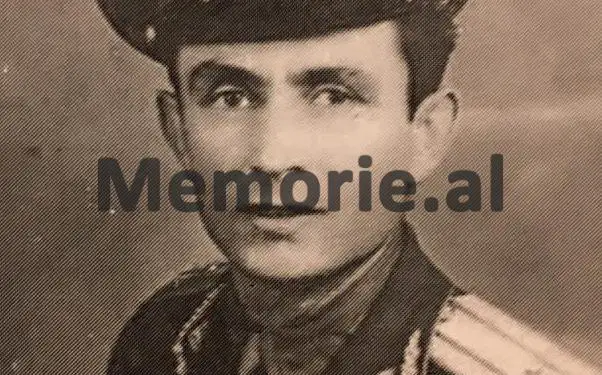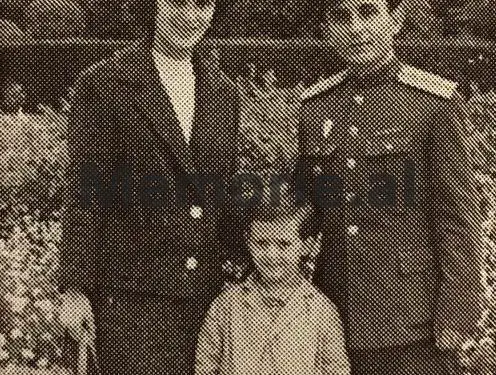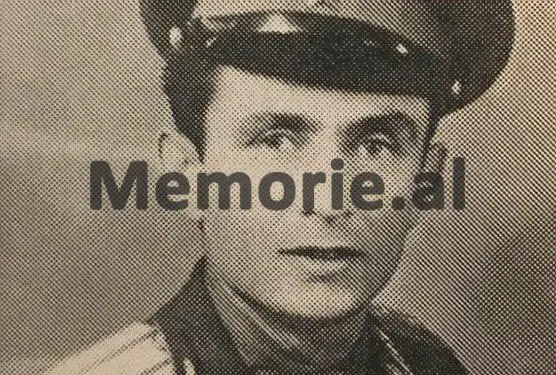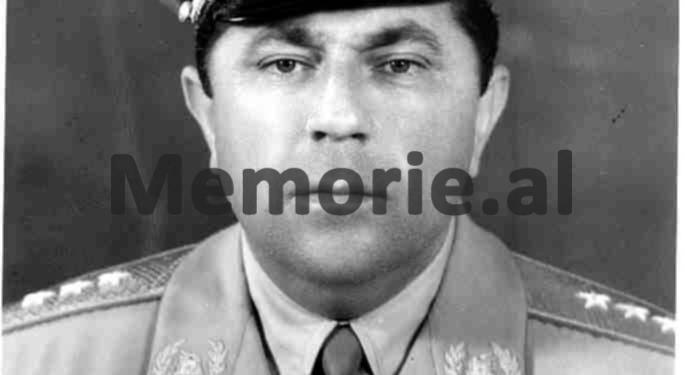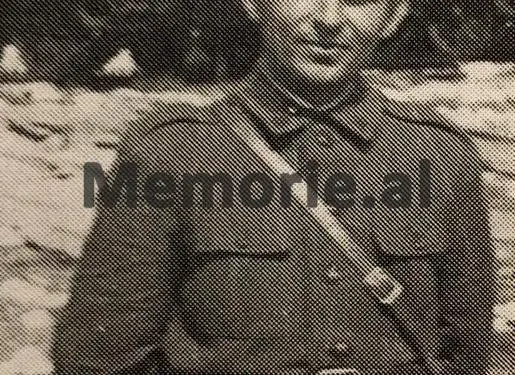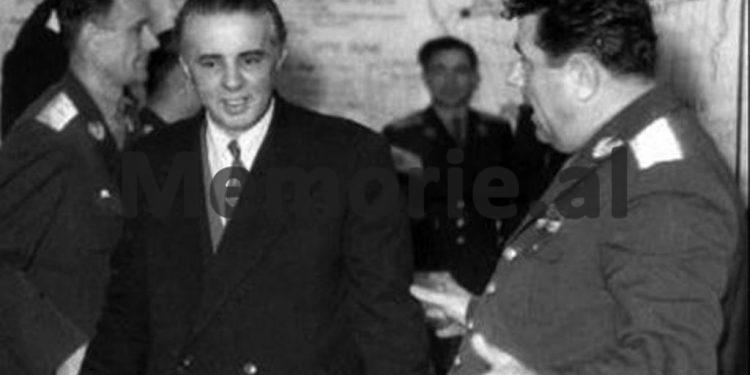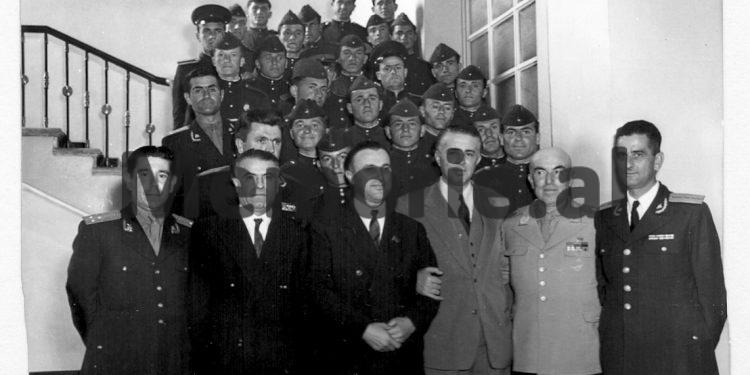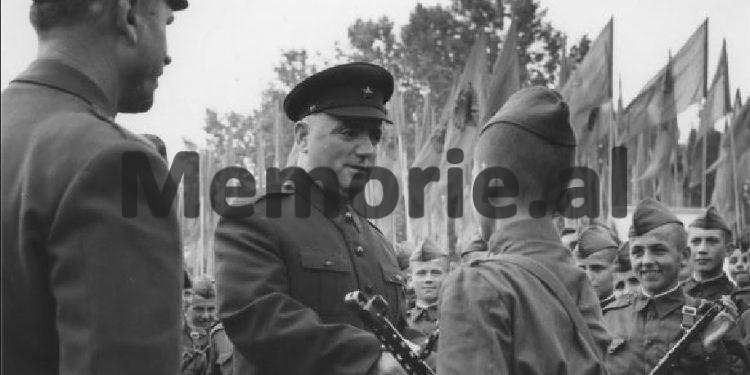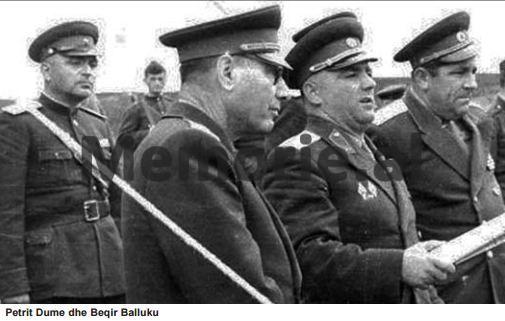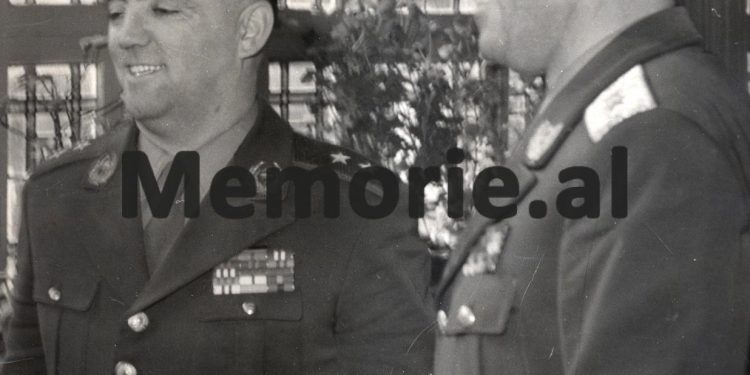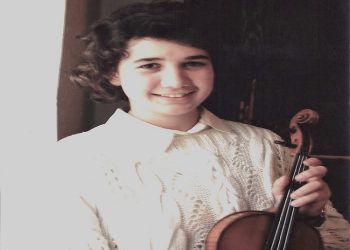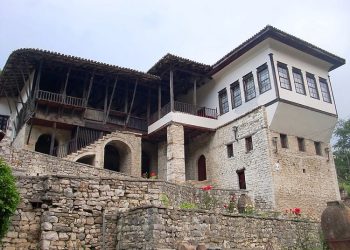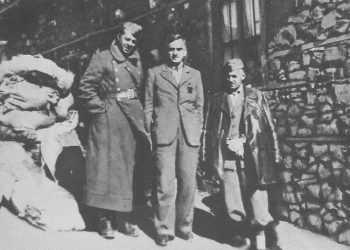Dashnor Kaloçi
Memorie.al publishes the unknown story of Irfan Morava, originally from Korça, who wanted to follow in the footsteps of his father, Hamdi, a former military man during the Zog Monarchy and a lecturer at the Officers’ Training School in Tirana. attended classes at the Skanderbeg Cadet Military School and then the Military Academy, which he completed with high results and then served in several districts of the country as commander of several units. The testimony of Lieutenant Colonel Moarava about the events of 1974-75, when Enver Hoxha and the senior leadership of the ALP began to crack down on the so-called “Army coup group” led by Beqir Balluku, Petrit Dumen, Hito Çako, etc., where he too ended up behind bars, as he was considered a close associate of the Chief of the General Staff of the Army, and in conversations with his colleagues, he took them into his own defense, disobeying what he said. The party, that they “were enemies of the people”.
“The department that I commanded in Zall-Herr together with the Tank Brigade that was installed in the Sauk hills, had as a functional task to protect the city of Tirana and the main institutions such as Central Committee, Prime Minister, Presidency of the People’s Assembly, Bloc -the leadership, etc. At the time when the crackdown on Beqir Balluku and the main cadres of the Ministry of Defense began, I was not convinced by the accusations raised by the top leadership against them, and from time to time I discussed these things with a colleague of mine. , in very narrow districts. At that time I was more than convinced that the wave of strikes that had begun against the main leaders of the Army would extend even further, and would reach our leading levels, as, among other things, in the opinion of the military I was known. as a close man of Petrit Dume and Hito Çako ”. Retired Lieutenant Colonel Irfan Morava, a former career soldier with senior management, testified to the story of how he was arrested in 1975 and sentenced to seven years in prison, accused of being a “supporter of the coup group. of Beqir Balluku ”. Who is Irfan Morava, what is his past and what was his attitude in 1974, when the so-called “caste of major military” began to strike?
Father, Zog’s senior military
Irfani was born in 1933 in the village of Gracë in Devoll, where his family originated from. Irfan’s father, Hamdi Morava, left his native village at the end of 1929 and moved with his family to Tirana. Regarding this, Irfani said: “The reason for my father’s departure from the village came after Prime Minister Ahmet Zogu had named him a career officer, appointing him commander at the Officers’ Training School, which had been opened at the time on the outskirts of the capital. For ten years, from 1929 to 1939, when that school was closed after the fascist aggression against Albania, the father served there as a commander and lecturer. After the occupation of Albania by fascist Italy, the father was appointed an officer in the Recruitment Branches of Korça and Gostivar, a city which at that time was under the administration of the Albanian state. In Gostivar, Hamdiu had as a colleague and close friend, the soldier Sulo Shehu from Çorushi of Mallakastra, who was Mehmet Shehu’s uncle. In October 1944, Hamdi and Sulo Shehu were arrested by the Germans for aiding and abetting the partisan brigades and the Anti-Fascist Movement. After being arrested by the Germans, they were sent to the Pristina prison, where they were later released with the intervention of some senior Kosovar politicians, whom they had close friends. After their release from the German prison, the father returned to Gostivar and then returned to Tirana with his family. Given the attitude of the father during the occupation, by order of the Chief of General Staff, Mehmet Shehu, in 1945, the father was appointed an officer in the Military School “Skanderbeg”, which would be opened at that time in Tirana”, Reminded Irfan Morava, for his father Hamdi, who after serving for ten years as an officer of Zogu, would serve another nine years as an officer in the communist regime of Enver Hoxha.
Irfan Morava’s military career
Ever since he was very young, Irfan Morava has wanted to become an officer just like his father. Regarding this wish, which he would make a reality, Irfani recalled: “After finishing primary school in the city of Korça, in the years 1940-’44, we family went to the city of Gostivar, where the father had been transferred. After returning from Gostivar to Tirana, I continued the school I had left unfinished and in 1946, I enrolled in the Military School of Cadets, “Skënderbej”, where one of the officers assigned for its establishment was my father. Hamdi. After graduating from that school in 1950-52, I completed an officer’s course at the Military High School, where I was given the rank of lieutenant, after graduating with honors. From 1953 to 1955, I served as an instructor at the Directorate of Training at the Ministry of People’s Defense, and in 1956, I was transferred as an officer to Skanderbeg School. After working for two years at that school, like many other soldiers of that time who moved with and without criteria from one city to another, so in 1958, I moved to the city of Përmet and two years later. late in that of Vlora, where the Përmet Brigade moved. In September 1960, I was given the right to study at the Military Academy in Tirana, which had just opened, and I was in my first year as an officer at the three-year academy. During the three years that I studied in the Department of Commerce, for each year I came out with high results, being evaluated as one of the best students. After its completion, in 1965, I was appointed Commander of the Battalion in Doda Castle, Dibra district, a unit which at the time depended on the Kukes Brigade, commanded by Maliq Sadushi. For the good results he achieved, the battalion that I commanded there in Doda Castle, in 1966, I was elected as a delegate in the Fifth Congress of the ALP “, Irfan Morava recalls regarding his education and frequent movements. as military, from one district to another.
In defense of the “coup group”
After Irfan Morava served for several years in several districts of the country, in 1968, he was transferred and brought to Tirana, appointing him Commander of the Battalion of Armored Transporters, in the Sauk Brigade Brigade. In this regard, Irfani stated: “I served in that position for three years, and in 1971, I was transferred again to the Zall-Herri Tanks Brigade, where I was appointed Commander of the Armored Transport Battalion Commander, as well as I was also in the Sauk Brigade. A year later, in 1974, I was appointed Commander of the Zall-Herri Regiment, a unit which, along with that of the Sauk Tanks, had the functional task of protecting Tirana and key institutions such as the Central Committee, the Presidency. of the Presidium of the People’s Assembly, the Prime Minister’s Office, the Leadership Bloc, etc. At that time, Enver Hoxha and the senior leadership of the ALP began to crack down on the Minister of Defense, Beqir Balluku, and then on his two deputies, Petrit Dumes and Hito Çako, who held the positions of Chief of Staff, and To the Political Director of the Army, I was in charge of that unit, which had very delicate tasks. As in all Army units in our country, at that time successive party meetings began to be held, to clarify the framework for meetings and decisions taken by the Politburo, regarding the strikes that were taking place in the “Army Head”. In addition to these meetings, at that time, by order of Enver Hoxha, all the competencies of the senior military and various leaders of the Army were reduced to a minimum. In the event that up to that time, a Brigade Commander had the authority to alert a Battalion, at the time these occurred, the Brigade Commander could only sound the alarm after a platoon had received approval. superior instances. Also, the smallest movements in the Army were maximized, and for everything, we had to get permission from the Ministry of Defense, which was all under the surveillance of the State Security. All this was probably done by the paranoia of Enver Hoxha, who was afraid of a military coup, which existed only in his mind. At the meetings held at that time, we were asked to express our position to the chiefs of the Ministry of Defense and to show solidarity with the decisions of the Politburo to punish them. In my conscience, I was not at all convinced that Beqir Ballkuk and Petrit Dumen, and Hito Çako, were saboteurs and traitors, as we were served by the top leadership. I could never believe this and thought the opposite, valuing them as capable, dedicated, and loyal cadres who had served for years at the helm of the Army. These assessments that I had for them, were not baseless and came after I got to know them closely, due to the working relationships I had with them. Those thoughts that I had about the senior leadership of the Ministry of Defense, from time to time I talked only with a colleague in very close circles and I was convinced that the shock wave that had started against the main leaders of the Albanian Army, would come to our command levels. For this I was more than convinced, given the fact that at that time in the opinion of the military, I was known as a close man Petrit Dume and Hito Chako “recalled retired lieutenant colonel Irfan Morava, the period when Enver Hoxha began to strike at Beqir Balluku of the senior military of the Ministry of Defense.
Arrest and sentence of 7 years in prison
What happened next to Irfan Morava, who was recommended by Petrit Dume to the post of Commander of the Armored Transporters Regiment in Zall-Herr, a unit whose main task at the time was to protect Tirana? Regarding this, Lieutenant Colonel Morava said: “My conviction that the shock wave that had started against the Albanian Army would go down to the level of unit commanders was not wrong. This was inevitable because the top leadership knew the relationships and considerations we had with the leadership of the Ministry of Defense and what they had with us. In this context, in January 1975, the Ministry of Defense’s Framework Directorate communicated to me the dismissal and early retirement. That was just the beginning and I felt the greatest evil would come next. I strengthened this conviction even more, as immediately after my release, I began to be regularly monitored by the State Security and its people, who followed me at every step and asked me provocative questions. This situation did not last more than three or four months, and on April 30, 1975, Security officers and investigators from the Tirana Directorate of Internal Affairs came and arrested me at my home. After the arrest, they did a thorough search of the house and confiscated some of my military belongings, as well as some cut-out photos, where I had appeared with Beqir Balluku and other Army cadres who had been declared enemies at the time. At that time, several other officers were arrested, such as Xhevat Alibali, Halil Laze, Drago Isufi, Shaban Reçi, and Saimir Maloku. The investigation was carried out in ward 313 and the accusation against me was “Hostile activity against the people, the country and the Party, in cooperation with the coup group of Beqir Balluku”. During the investigation, I was asked to admit that all the exercises we had done with the unit I commanded were in the function of carrying out the military coup of Beqir Balluku and his associates. After this absurd accusation was never substantiated and rejected by Beqir Balluku himself with Petrit Dume and other former generals, I was left with only the accusation of agitation and propaganda, where it was said that I had praised and defended the enemies of the party. and the people, saying that they were not coup plotters. The trial against me took place on August 30, 1975 in the Court of Tirana by a civil college, and for those two or three days, the entire Durrës Street was blocked, from Zogu i Zi to the center. All this was done to show the “danger” that I presented as a soldier and a collaborator of the “Puchist Group”, concludes his confession, retired Lieutenant Colonel Irfan Morava, who served seven years in the communist regime’s prisons for him. the only reason he had a working relationship with Petrit Dume and Hito Çako, which Enver Hoxha declared “enemies of the people” and shot, as the teacher and his spiritual father had once done. Josif Visarianovic Stalin in Russia with the senior military in the 1930s, or Mao Tse Tung with the Minister of Defense, Lin Biaon./Memorie.al




